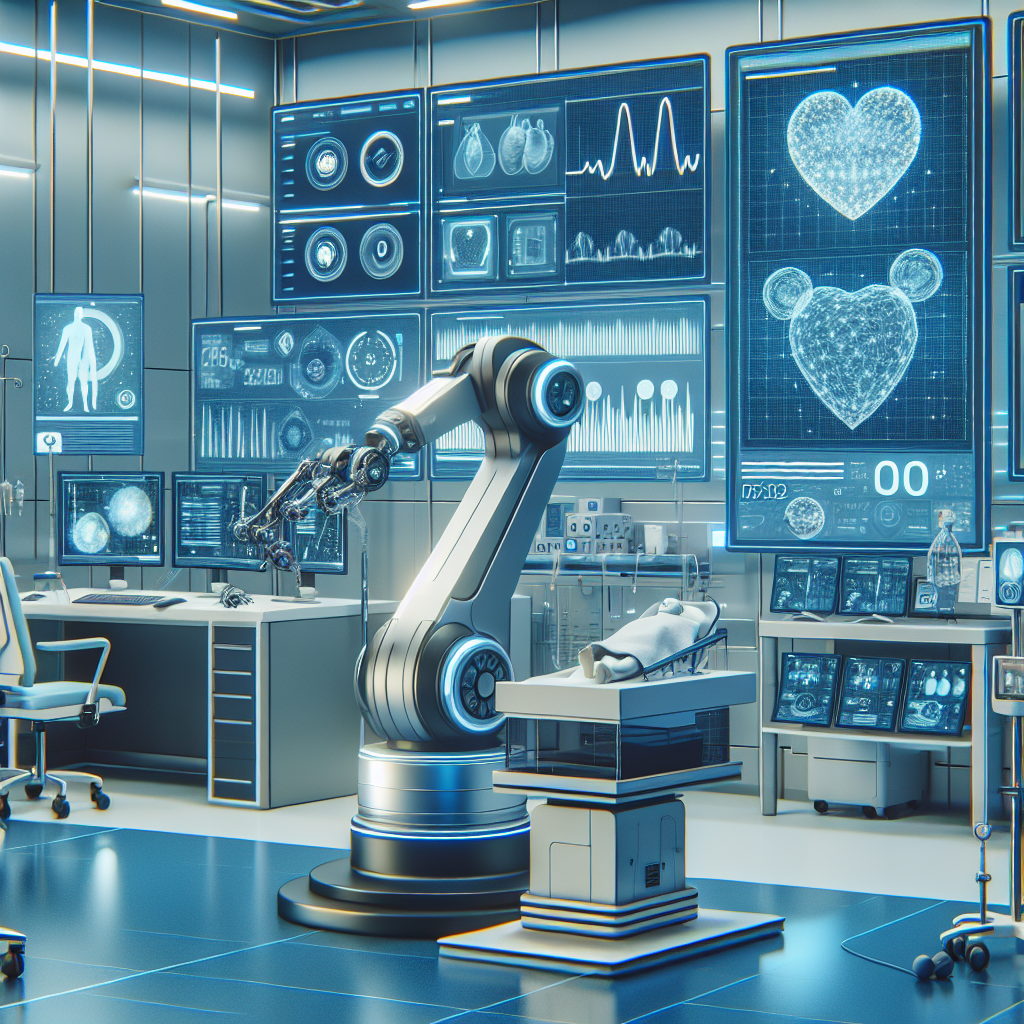In recent years, the healthcare industry has been revolutionized by the integration of artificial intelligence (AI) and predictive analytics. These technologies have the potential to transform patient care, improve outcomes, and reduce costs. From predicting disease outbreaks to personalizing treatments, AI and predictive analytics are changing the way healthcare is delivered.
AI refers to the simulation of human intelligence processes by machines, while predictive analytics involves using data, statistical algorithms, and machine learning techniques to identify the likelihood of future outcomes. When combined, these technologies can analyze vast amounts of data to generate insights and make predictions that can help healthcare providers make more informed decisions.
One area where AI and predictive analytics are making a significant impact is in disease prevention and early detection. By analyzing patient data, such as medical records, genetic information, and lifestyle factors, AI can identify individuals who are at high risk for certain diseases. This allows healthcare providers to intervene early with preventive measures or targeted treatments, potentially saving lives and reducing healthcare costs.
For example, AI-powered algorithms can analyze images from medical scans to detect signs of cancer or other diseases at an early stage. This can lead to earlier diagnosis and treatment, improving outcomes for patients. In addition, predictive analytics can help identify patterns in patient data that may indicate the likelihood of developing a particular condition, allowing for proactive interventions.
Another area where AI and predictive analytics are making a difference in healthcare is in personalized medicine. By analyzing genetic data and other patient information, AI can help healthcare providers tailor treatments to individual patients, maximizing efficacy and minimizing side effects. This can lead to more successful outcomes and a higher quality of care for patients.
In addition to improving patient care, AI and predictive analytics are also being used to streamline healthcare operations and reduce costs. By analyzing data on patient flow, resource utilization, and other factors, AI can help healthcare providers optimize their processes and make more efficient use of resources. This can lead to cost savings and improved operational efficiency, benefiting both patients and healthcare organizations.
Despite the many benefits of AI and predictive analytics in healthcare, there are also challenges and concerns that need to be addressed. One major concern is the privacy and security of patient data. As AI systems rely on vast amounts of data to make predictions, there is a risk that sensitive information could be compromised. Healthcare providers must take steps to ensure that patient data is protected and used responsibly.
Another challenge is the potential for bias in AI algorithms. If the data used to train AI systems is not representative of the population as a whole, the algorithms may produce biased results. This could lead to disparities in healthcare outcomes and exacerbate existing inequalities. Healthcare providers must be vigilant in monitoring and addressing bias in AI systems to ensure fair and equitable treatment for all patients.
Despite these challenges, the future of AI and predictive analytics in healthcare looks promising. As technology continues to advance and more data becomes available, the potential for these technologies to improve patient care and outcomes will only grow. By harnessing the power of AI and predictive analytics, healthcare providers can revolutionize the way healthcare is delivered, leading to better outcomes for patients and a more efficient healthcare system overall.
Frequently Asked Questions (FAQs):
Q: How can AI and predictive analytics improve patient care in healthcare?
A: AI and predictive analytics can improve patient care by helping healthcare providers identify individuals at high risk for certain diseases, personalize treatments, and streamline operations to make healthcare more efficient and cost-effective.
Q: What are some examples of how AI is being used in healthcare?
A: AI is being used in healthcare to analyze medical images, predict disease outbreaks, personalize treatments, and improve operational efficiency.
Q: What are the challenges of using AI and predictive analytics in healthcare?
A: Some of the challenges of using AI and predictive analytics in healthcare include concerns about privacy and security of patient data, potential bias in algorithms, and the need for ongoing monitoring and oversight to ensure fair and equitable treatment for all patients.
Q: How can healthcare providers address concerns about bias in AI algorithms?
A: Healthcare providers can address concerns about bias in AI algorithms by ensuring that the data used to train these systems is representative of the population as a whole, monitoring algorithms for bias, and taking steps to correct any bias that is identified.
Q: What is the future of AI and predictive analytics in healthcare?
A: The future of AI and predictive analytics in healthcare looks promising, with the potential to improve patient care, outcomes, and operational efficiency. As technology continues to advance, the benefits of these technologies in healthcare will only grow.

